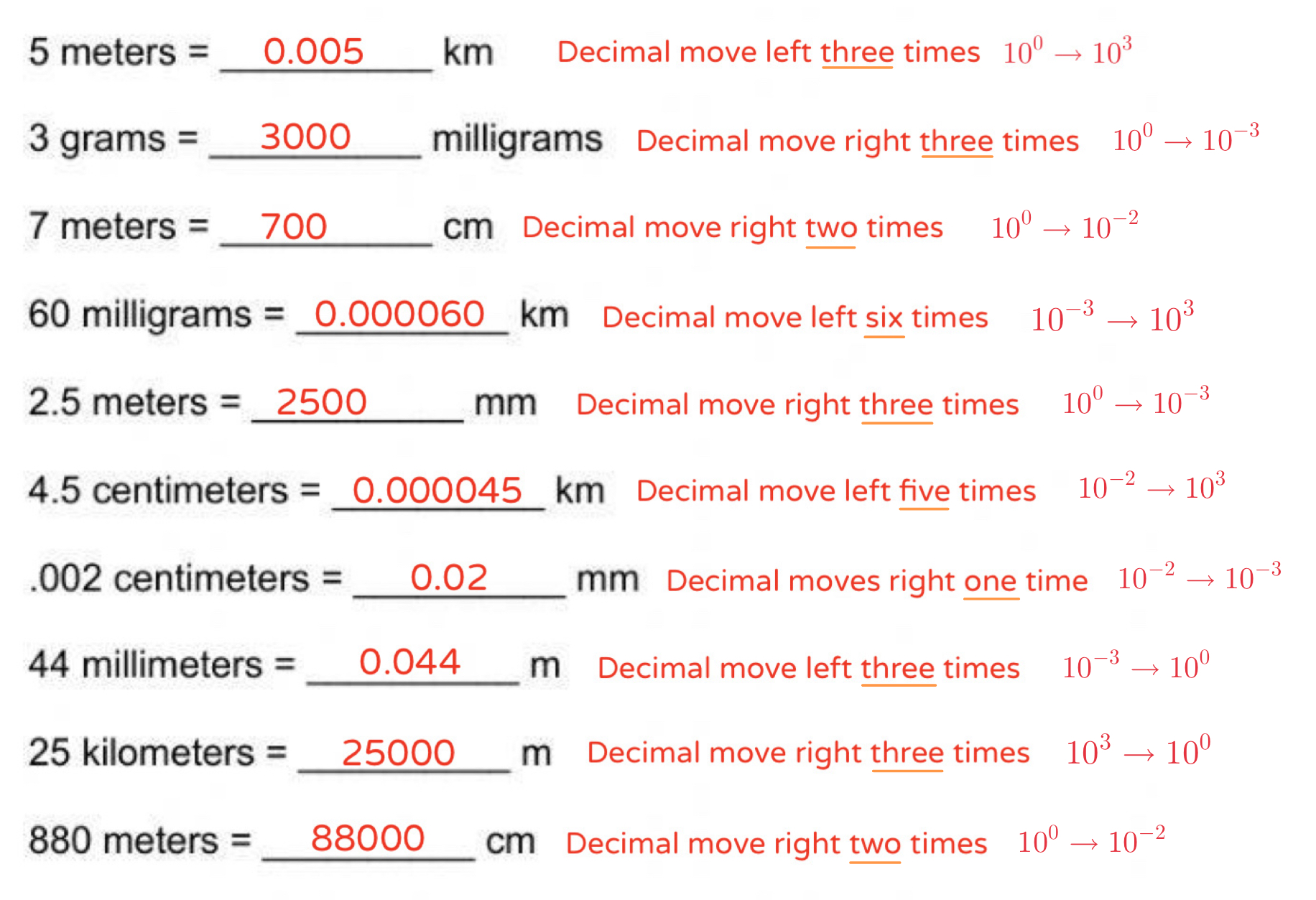Significant Figures, Scientific Notation, and the Metric System
Objectives
Understand the concept of significant figures and their importance in precision of measurements.
Learn how to convert numbers into scientific notation and apply it in calculations.
Gain familiarity with the metric system and its units of measurement, enhancing our ability to communicate scientific data effectively.
Helpful video
Significant Figures (SF)
The Four Rules of Significant Figures (TEST!!)
All nonzero digits are significant
Zeros between nonzero digits are significant
Leading zeros are NOT significant
Trailing zeros are significant when a decimal point is present
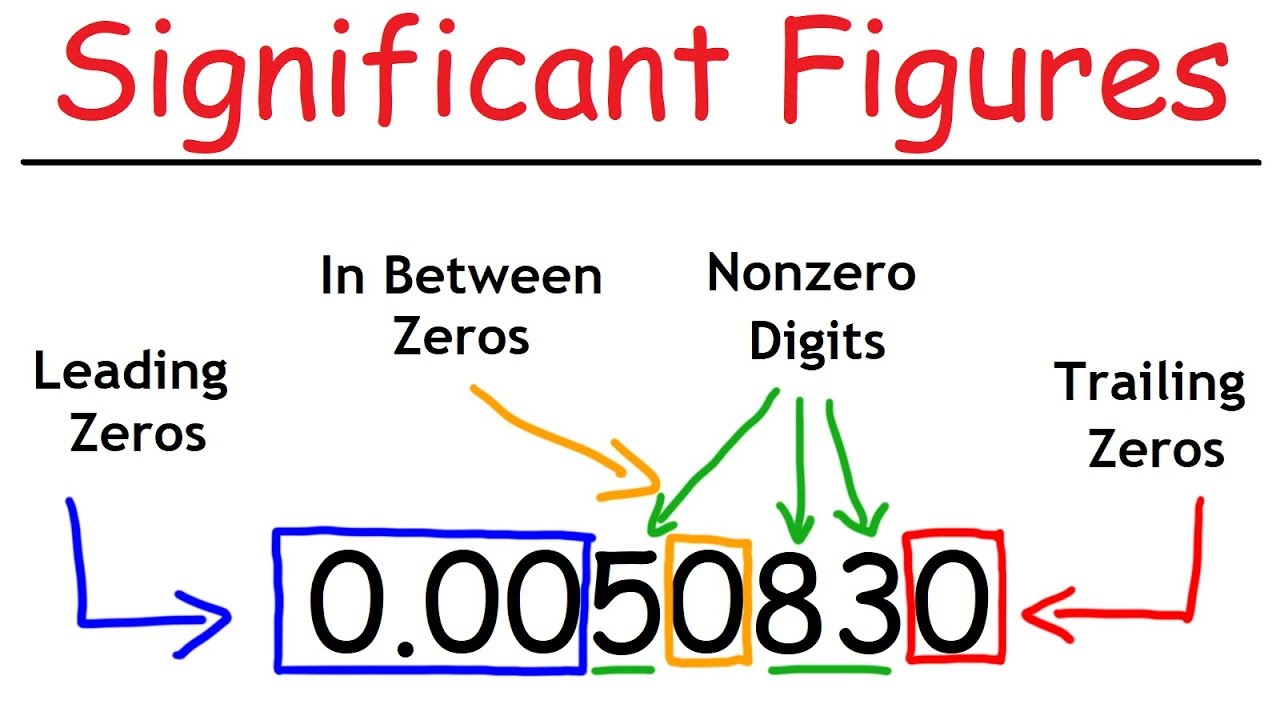
Examples
All nonzero digits are significant
17 = 2 SF
85473 = 5 SF
427 = 3 FF
Zeros between nonzero digits are significant
105 = 3 SF
61.407 = 5 SF
4009 = 4 SF
Leading zeros are NOT significant
0.007 = 1 SF
0.305 = 3 SF
0.4078 = 4 SF
Trailing zeros are significant when a decimal point is present
2300.0 = 5 SF
467,000,000.00 = 11 SF
19.00 = 4 SF
Multiplying and Significant Figures
Rule: When multiplying numbers, the result should have the same number of significant figures as the factor with the least significant figures. For example:
3.24 (3 SF) × 2.5 (2 SF) = 8.1 (2 SF)
0.0045 (2 SF) × 200 (1 SF) = 9 (1 SF)
Scientific Notation
Scientific notation is a way to write very large or very small numbers in a more compact and manageable form.
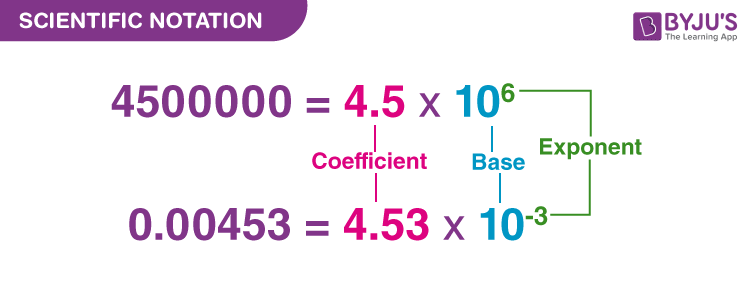
When you are moving the decimal point to the LEFT, the exponent is POSITIVE
When you are moving the decimal point to the RIGHT, the exponent is NEGATIVE
Examples (TEST!!)
Express the following numbers in scientific notation. Use 3 significant figures.
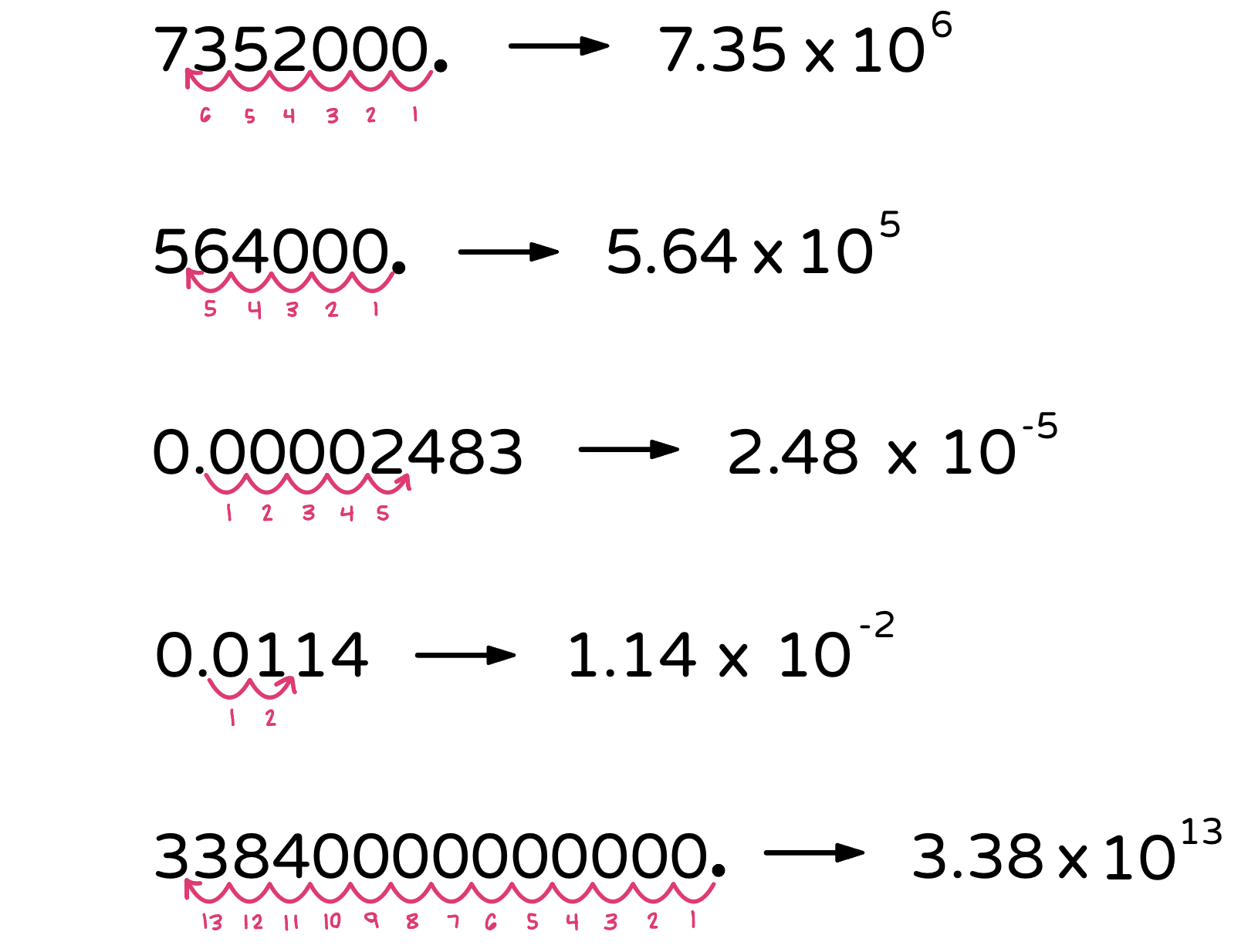
Metric Conversions
On the table “Base” represents the base units Meter, Liter, Gram, or Second
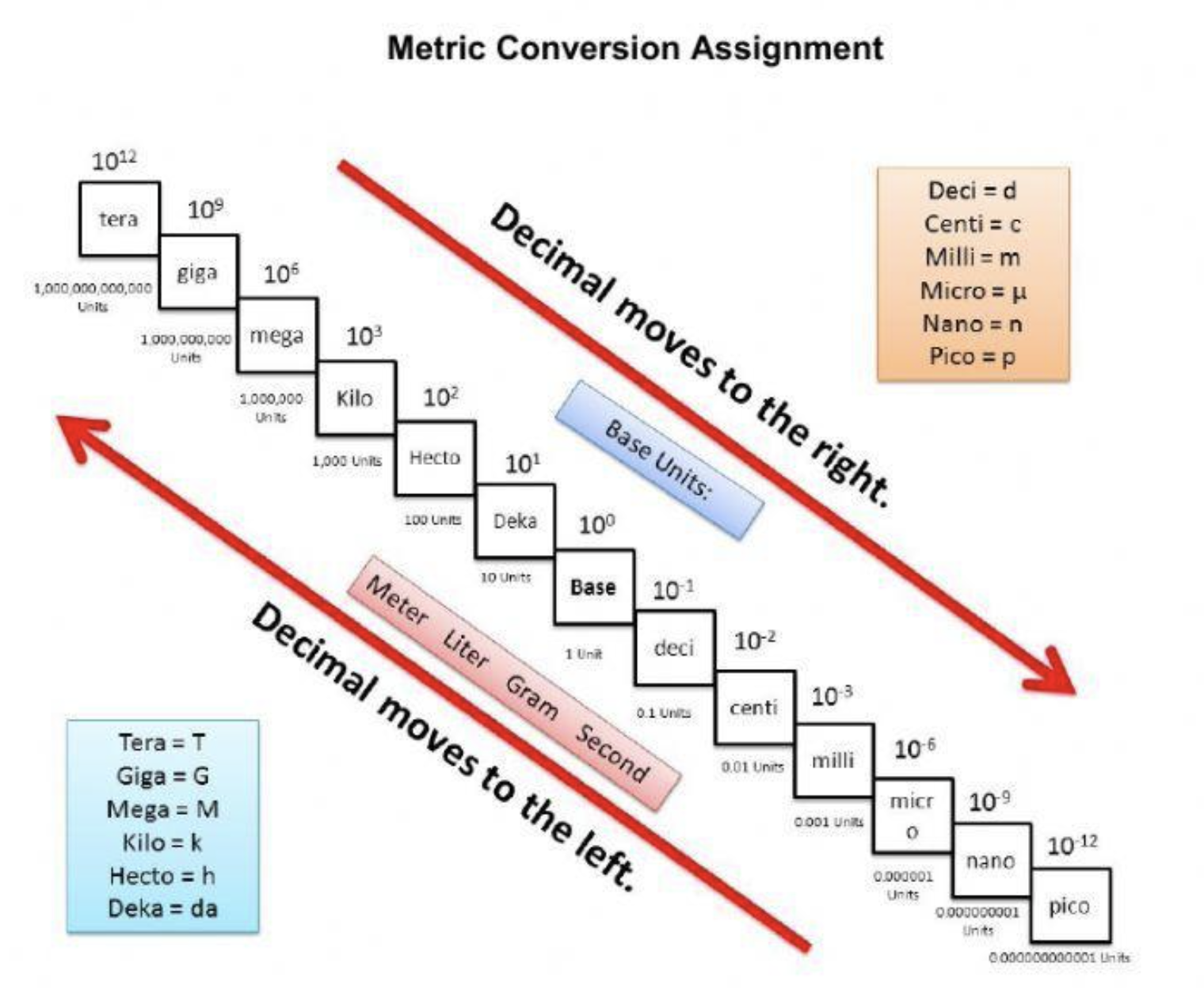
!! PAY ATTENTION TO EXPONENTS !! (TEST!!)
When converting from Deka to Hecto, the decimal more left ONE time.
101 to 102
When converting from kilo to mega, the decimal moves left THREE times.
103 to 106
When converting from kilo to micro, the decimal moves right NINE times.
103 to 10-6
When converting from tera to giga, the decimal moves right THREE times.
1012 to 109
When converting nano to mega, the decimal moves left FIFTEEN times.
10-9 to 106
Examples (TEST!!)
